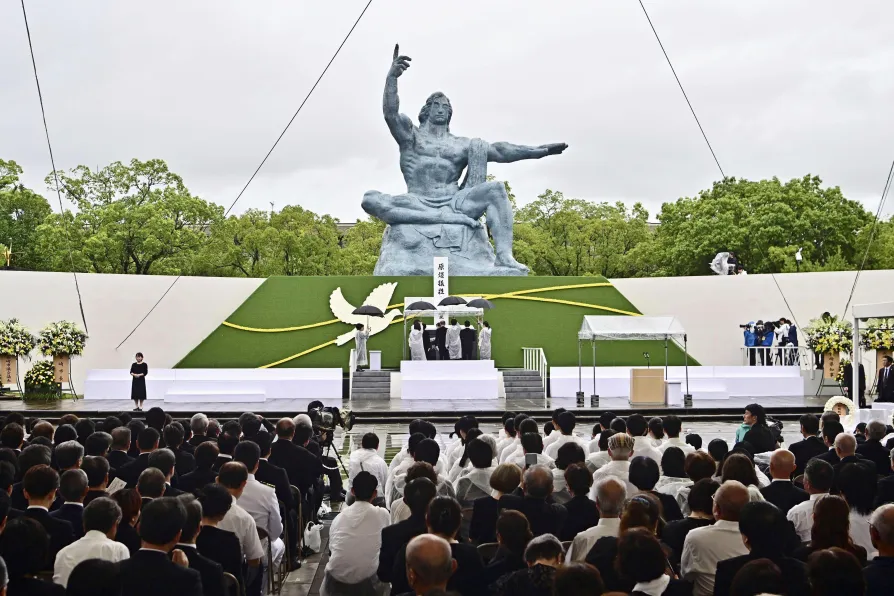
 People attend a ceremony to mark the 80th anniversary of the US atomic bombing at the Peace Park in Nagasaki, southern Japan, August 9, 2025
People attend a ceremony to mark the 80th anniversary of the US atomic bombing at the Peace Park in Nagasaki, southern Japan, August 9, 2025
“NEVER use nuclear weapons again, or we’re finished,” 93-year-old survivor of the Nagasaki bombing Hiroshi Nishioka said at Saturday’s event marking the 80th anniversary of the US attack.
On August 9 1945, three days after the first atom bomb, nicknamed Little Boy, was dropped on Hiroshima, a second even more powerful device, dubbed Fat Man, was detonated over Nagasaki. The United States was keen to test two types of atomic bomb, with Little Boy a uranium bomb and Fat Man a plutonium one. The Nagasaki bombing directly killed about 70,000 people, following the 140,000 killed by the Hiroshima attack.
“Even after the war ended, the atomic bomb brought invisible terror,” Mr Nishioka said, noting the impact of radiation poisoning, with many who survived the initial attack later suffering hair loss and bleeding from their gums in the first signs of what would prove to be fatal after-effects.
The Nagasaki Peace Park memorial event drew 2,600 people and delegations from over 90 countries.
Nagasaki Mayor Shiro Suzuki said: “The existential crisis of humanity has become imminent to each and every one of us living on Earth.
“In order to make Nagasaki the last atomic bombing site, now and forever, we will devote our utmost efforts toward the abolition of nuclear weapons and the realisation of everlasting world peace.”
Another Hibakusha, as survivors of the bombings are known, 83-year-old Fumi Takeshita, said: “There are only two things I long for: the abolition of nuclear weapons and prohibition of war.”
Ms Takeshita tours schools, speaking to pupils about the need to preserve peace. “When you grow up and remember what you learned today, please think what each of you can prevent war,” she told children at one session this week.
Many Hibakusha are critical of the Japanese government's refusal to sign the Treaty on the Prohibition of Nuclear Weapons, on the grounds that it supports the US possession of nuclear weapons. Many countries, including the US and Britain, are now expanding their nuclear arsenals.
“Countries must move from words to action by strengthening the global disarmament regime” mandated by the treaty, which requires nuclear weapons states to take steps toward disarmament, UN secretary-general Antonio Guterres said in a message read to the ceremony.










